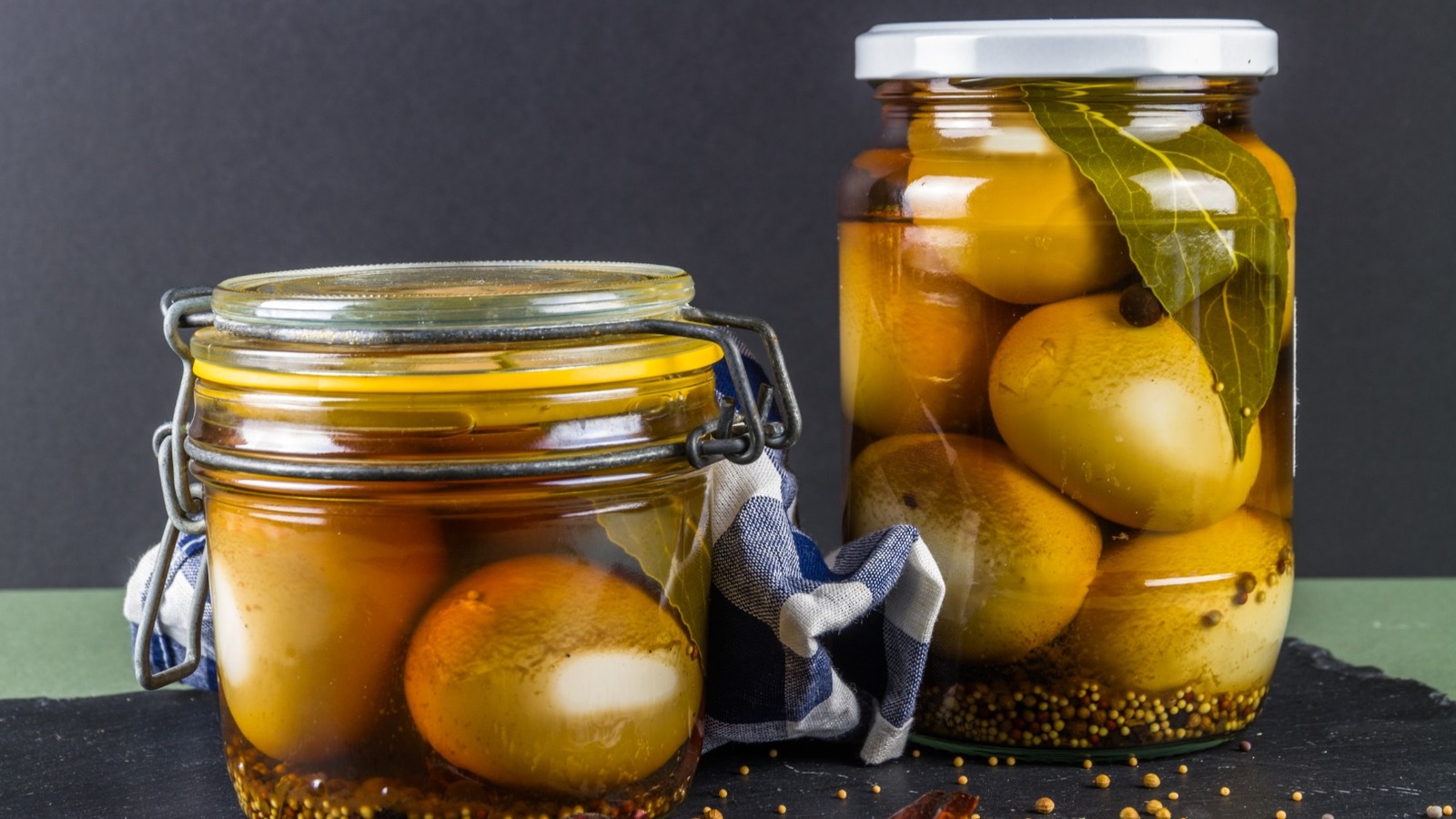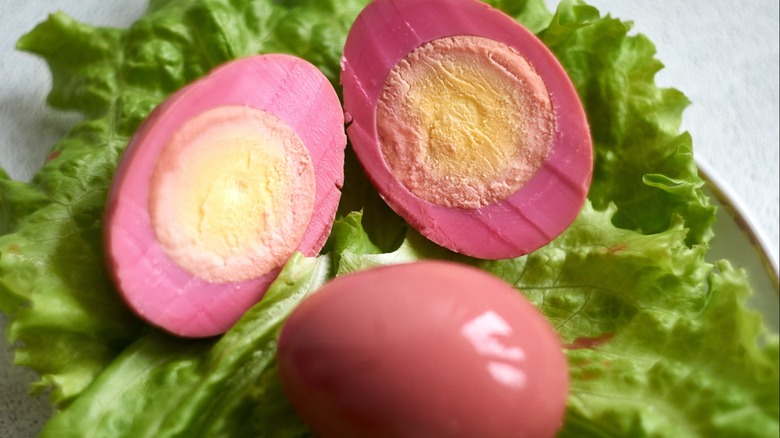Pickles have been riding high as a food trend. You can make pickles at home and keep them for years. You can also use this method to preserve almost anything for a tasty snack, like these 14 pickled vegetables we recommended keeping in your fridge. It’s not just vegetables, either. You can pickle everything from sausage to pigs’ feet and, of course, the legendary pickled egg.
Hard-boiled eggs used to be fixtures in many bars, and it’s a tradition that dates back to 17th-century Europe when businesses selling alcohol needed to offer food. A jar of cheap boiled eggs was a legal loophole to that food rule. Pickling the eggs ensured they would last longer, and that briefly became a standard in American bars. But there is danger in keeping a jar of pickled eggs in your pantry. You could make yourself sick, as home-canned pickled eggs have been linked to botulism.
Homemade pickled eggs are generally very safe. In fact, we have a great herby pickled egg recipe. But you have to refrigerate them properly. You can’t try to keep them shelf-stable in a pantry. That’s a potential breeding ground for bacteria, even with a pickling brine.
How to keep your pickled eggs safe
Pickled eggs have been made for longer than you probably realize. There’s at least one recipe that dates back to the 14th century. You’d be forgiven for thinking that eggs pickle as easily as vegetables and are therefore perfectly safe once preserved; eggs are a tricky food to deal with, and the problem is hidden in the yolk.
While the white of an egg pickles up very quickly by absorbing the pickling solution, it takes much longer to penetrate the yolk. A study in Poultry Science showed that the whites would be fully pickled in just one day, while it took six days for the acid to get through the yolk. Because of that, refrigeration is necessary to inhibit bacterial growth and keep you safe.
A food poisoning case from 1997 revealed a concentration of the toxin 1,000 times greater in the egg yolks than in the pickling liquid surrounding them. The eggs were found to have been stored at room temperature and pierced with a toothpick, a technique some believe will allow quicker penetration of the pickling liquid. But this can actually be what introduces toxins into the eggs.
Pickled eggs should only be kept at room temperature during the time they are served and should never be left out of the fridge for more than two hours. Follow our 12 tips for making your own homemade pickled eggs. As long as you get them in the fridge on time, you’ll have nothing to worry about.






